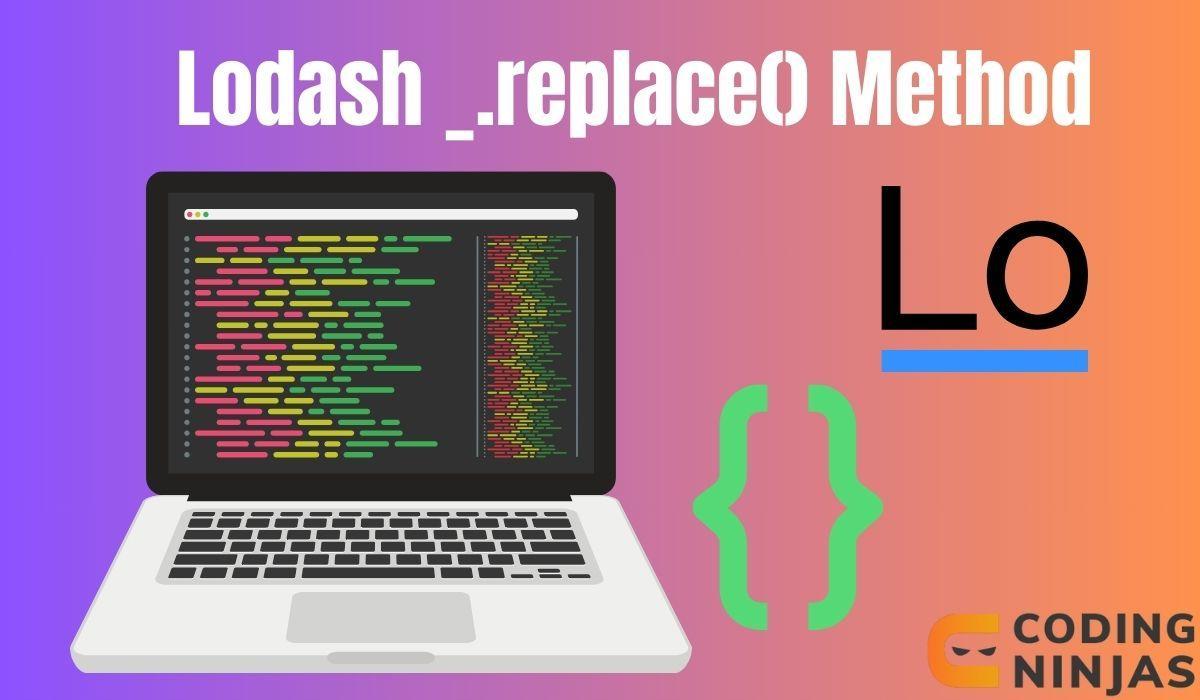Syntax, Parameter and Return Value
Syntax:
_.replace([string=''], pattern, replacement)
Parameters:
-
[string=''] (string): The string to modify.
-
pattern (RegExp|string): The pattern to replace.
- replacement (string): The string to replace the pattern with.
Return Value:
(string) - Returns the modified string.
Examples
Replacing a Substring in a String:
JavaScript
var _ = require('lodash');
var text = 'Hello world';
console.log(_.replace(text, 'world', 'there'));

You can also try this code with Online Javascript Compiler
Output:
'Hello there'
Demonstrates replacing a specific substring within a string.
Using Regular Expressions for Replacement:
JavaScript
var sentence = 'This is a test. This is only a test.';
var regex = /test/g; // 'g' for global replacement
console.log(_.replace(sentence, regex, 'demo'));

You can also try this code with Online Javascript Compiler
Output:
'This is a demo. This is only a demo.'
Shows using a regular expression to replace all occurrences of a pattern.
Dynamically Replacing Template Strings:
JavaScript
var template = 'Name: %name%, Age: %age%';
var data = { name: 'John', age: 30 };
var result = _.replace(template, /%name%/, data.name);
result = _.replace(result, /%age%/, data.age);
console.log(result);

You can also try this code with Online Javascript Compiler
Output:
'Name: John, Age: 30'
An example of using _.replace() for replacing placeholders in a template string.
Sanitizing User Input:
JavaScript
var userInput = 'I <3 JavaScript!';
var sanitizedInput = _.replace(userInput, /<3/g, 'love');
console.log(sanitizedInput);

You can also try this code with Online Javascript Compiler
Output:
'I love JavaScript!'
Demonstrates sanitizing user input by replacing specific patterns.
Frequently Asked Questions
How does _.replace() handle patterns not found in the string?
If the pattern is not found in the string, _.replace() returns the original string unchanged.
Can _.replace() handle complex regular expressions?
Yes, _.replace() can handle complex regular expressions, making it versatile for various text manipulation tasks.
Is _.replace() suitable for replacing multiple different patterns?
For multiple different patterns, _.replace() would need to be called multiple times, once for each pattern to replace.
Conclusion
Lodash's _.replace() method is a versatile tool for modifying strings by replacing specified patterns with replacement strings. It's useful for a wide range of text manipulation tasks, from simple string replacements to more complex pattern matching and data sanitization.
You can refer to our guided paths on the Coding Ninjas. You can check our course to learn more about DSA, DBMS, Competitive Programming, Python, Java, JavaScript, etc.
Also, check out some of the Guided Paths on topics such as Data Structure and Algorithms, Competitive Programming, Operating Systems, Computer Networks, DBMS, System Design, etc., as well as some Contests, Test Series, and Interview Experiences curated by top Industry Experts.





